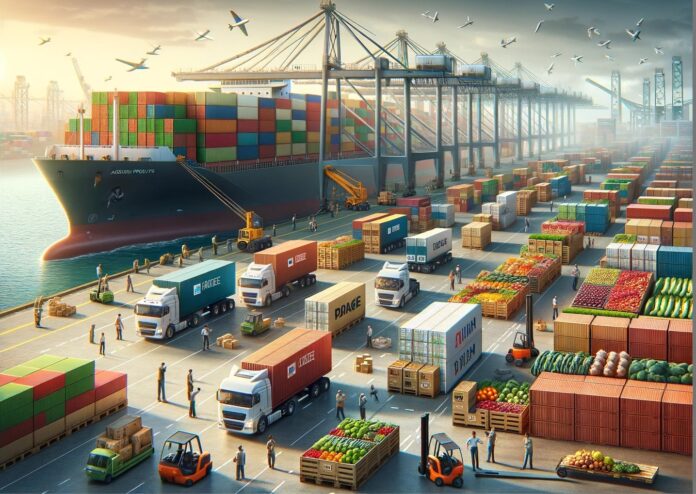ISLAMABAD: After a brief respite, Pakistan’s rice exports have come to a halt once again due to inefficiencies at the Department of Plant Protection (DPP). Exporters claim that non-technical officials have been appointed to key positions, leading to severe delays in issuing phytosanitary certificates required for export. As a result, consignments are stranded at ports, creating a major bottleneck for the industry.
The Rice Exporters Association of Pakistan (REAP) has expressed serious concerns over the disruption and has called an urgent meeting to address the issue. The association has urged its members to submit details of pending phytosanitary certificates, including consignment specifics and destination countries. REAP has vowed to escalate the matter to higher authorities, seeking immediate intervention.
According to sources, a Customs official with no prior experience in food safety and quarantine has been appointed as the Director General of the DPP. Additionally, other controversial and inexperienced junior staff have been placed in key roles, further hampering the department’s ability to efficiently process export certifications.
Interestingly, most technical experts with relevant qualifications have either been sidelined, suspended, or removed under the pretext of internal inquiries. This reshuffling has severely impacted the DPP’s efficiency, resulting in increased shipment rejections by the European Union (EU), Russia, and Uzbekistan due to contamination issues such as Maximum Residue Limits (MRL), aflatoxin, and pest presence.
Backlash from international markets:
Pakistan continues to face scrutiny from major export markets. Reports indicate that both Russia and Uzbekistan have expressed dissatisfaction over the clearance of contaminated kinnow shipments, warning of potential import restrictions on Pakistani agricultural products.
A Customs source, speaking on condition of anonymity, revealed that a Customs officer who was previously deferred for promotion due to alleged integrity concerns, has been appointed as Director Technical at the DPP.
He was given the position due to his close ties with a senior official at the Ministry of National Food Security & Research (MNFSR). This appointment has drawn sharp criticism, as the custom official lacks the technical expertise required for the role.
Adding to the controversy, Dr. Muhammad Basit, a BS-18 officer facing corruption charges, has been given dual charges as Director Quarantine (BS-19) and Director Pesticides Registration (BS-19) without lawful authority.
He was previously suspended and implicated in a corruption case (FIA Karachi FIR No. 2/2019) for allegedly accepting a PKR 16 million bribe to clear an infected soybean shipment. His appointment has raised serious concerns within the industry, with allegations of collusion between DPP officials and private importers/exporters.
Exporters face dire consequences:
Exporters claim that DPP’s inefficiencies are now threatening the country’s broader agricultural trade, with potential bans looming over citrus and potato exports to Russia and Uzbekistan. While the Secretary MNFSR had earlier directed the posting of qualified officers at ports, the DPP leadership instead appointed blue-eyed favorites, many of whom are linked to past corruption cases.
Moreover, insufficient inspection staff at ports has exacerbated delays, forcing exporters to either wait indefinitely or engage in under-the-table deals to expedite processing. Insiders suggest that some DPP clerks and junior officials are demanding bribes to clear files, further highlighting the department’s deep-rooted inefficiencies.
What’s next for Pakistan’s agricultural exports?
The mismanagement at the DPP is not just affecting rice exports but also threatening the broader agricultural sector, including fresh fruits and vegetables. If immediate corrective measures are not taken, Pakistan could face stricter import conditions and possible restrictions from key international markets, dealing a significant blow to the country’s already struggling economy.
With REAP and other stakeholders now actively voicing their concerns, all eyes are on the government to take decisive action.




